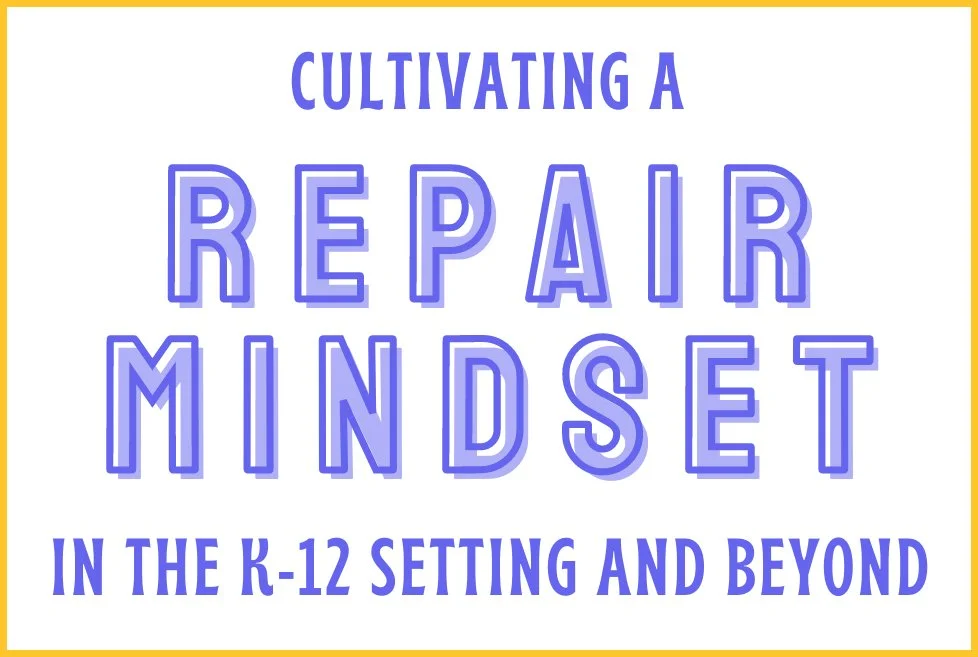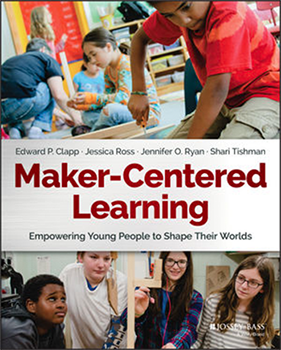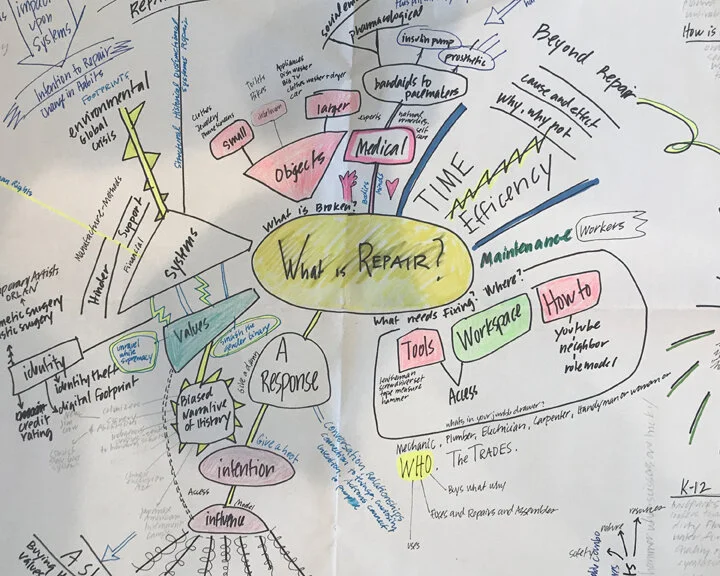Cultivating a Repair Mindset Toolkit
Note: The Toolkit is most powerfully deployed by professional educators as an extension of Maker-Centered Learning pedagogy, teaching and learning strategies, tools, and classroom materials. Details below.
Repair is a cultural matter that ultimately has more to do with how we think about and relate to our material world than it does to knowing the how-to’s of fixing things.
We found that repairing is a dynamic act of agency with political, environmental, and ethical implications. It’s an invitation to experience new ways of being and knowing and new perspectives on how we relate to and interact with our surroundings. (The Toolkit, page 3)
Agency by Design - Oakland and Maker Ed published the Cultivating a Repair Mindset Toolkit in late 2021. The Toolkit is grounded in and further develops the Maker-Centered Learning pedagogy, strategies and tools developed by Project Zero, a research arm of Harvard University’s Graduate School of Education.
The Toolkit includes teaching and learning strategies, tactics and classroom materials designed to support developing in students a way of approaching, thinking about and repairing things that are broken. Also included are research findings by the maker-educators who created the Toolkit, and the pedagogical framework for bringing repair into the classroom.
The thinking processes developed through repairing objects are transferable to approaching and thinking about anything of value that calls for repair — an organization, the environment, the political system, the social fabric, etc. As such, alongside cultivating a mindset inclined to and capable of repairing material objects, the Toolkit invites and enriches discussions of these foundational aspects of our lives.
While the Toolkit was developed to be used on its own, in order to orient oneself and most fully mine what the Toolkit has to offer, we suggest complementing it with the MCL foundational text, Maker-Centered Learning, Empowering Young People to Shape Their Worlds.
Order a Hard Copy
Hardcopy: $15 plus $10 shipping
Bundled with Fixing Things for the Future:
$30 + $10 shipping
Background Information
Repair and Maker Programs
Maker programs are being established in more and more schools. Repair’s problem-solving, materials exploration, design orientation, and systems thinking align exquisitely with Maker curricula, structures and objectives. The additional dimensions introduced by Repair offer an opportunity to further develop and enrich existent maker programs.
Maker-Centered Learning
Harvard University Graduate School of Education's Project Zero ran a multiyear research initiative investigating the promises, practices, and pedagogies of maker learning experiences. The project’s principal research and implementation site was in Oakland, California.
In 2016 the project published a theoretical framework and hands-on guide for teachers that identifies the core educational practices and ideas defining maker-centered learning: Maker-Centered Learning — Empowering Young People to Shape Their Worlds. The Oakland pilot program became Agency by Design - Oakland
Repair and Maker Centered Learning
In 2018 we began working with Agency by Design - Oakland to develop approaches to introducing Repair into Oakland’s Maker-Centered Learning program.
In 2019 a collaboration was established among Maker Ed, Agency by Design Oakland and The Culture of Repair Project. Over the next two years a group of six educators with long experience in school maker programs explored whether and how Repair might be productively integrated into Maker-Centered Learning. Tools and strategies were tested in the classroom, further developed with other maker educators, and brought together in a rich resource for teachers: the Cultivating a Repair Mindset Toolkit.
Maker Ed
For ten years the mission of Maker Ed was to harness the potential of making to transform teaching and learning through providing training, support, and resources to individuals, institutions and communities that are integrating maker education into their learning environments. Maker Ed wrapped up operations in 2022 but continues to offer a rich library of resources for educators.







